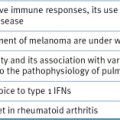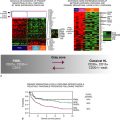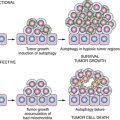html xmlns=”http://www.w3.org/1999/xhtml”>
53
Interferons
Introduction
Interferons (IFNs) comprise a family of secreted α-helical cytokines induced in response to specific extracellular biomolecules through stimulation of Toll-like receptors (TLRs). Acting in paracrine or autocrine modes, IFNs stimulate intra- and intercellular networks for regulating innate and acquired immunity, resistance to viral infections, and normal and tumor cell survival and death (Table 53-1 ). Through high-affinity cell surface receptors, IFNs stimulate genes, employing signaling molecules also used in part by other cytokines first identified through studies of IFNs. Perturbations in these pathways can also make cells resistant to a given ligand, facilitating either progression or resistance of malignancy. IFNs act on almost every cell type and, through their cellular actions, can be effective in inhibiting tumor emergence and progression and in inducing regression (see Table 53-1).
Studies on the mechanisms by which IFNs exert their antitumor activity have helped to understand host resistance to tumor emergence and also define cellular actions of interferon-stimulated gene (ISG) products (see Table 53-1). These latter proteins underlie not only the antitumor and immunoregulatory actions but also the antiviral effects of IFNs. More than a thousand genes regulated through IFN signaling pathways now have been identified. 1,2 Suppression of IFNs and influences on their regulated gene products in and by malignant cells is emerging as an important contributor to the development of some human cancers (Table 53-2 ). Germ-cell mutation of an ISG RNASEL increases risk for prostate, breast, head and neck, and pancreatic carcinomas. 3–6 Gene expression profiling and cytogenetic analyses have identified somatic homozygous deletions in the locus for IFNs at 9p21 and mutations of ISGs in melanoma, colon, lung, and hematologic malignancies. 7–12 Epigenetic and genetic silencing of IFN signaling also likely influences tumor development. 11,13–15 Activated natural killer (NK) and T cells have a critical role in the production and action of IFNs for potent immunomodulatory roles in the protection from chemical carcinogenesis and in controlling the growth of syngeneic and transplanted tumors. In addition to being a primary source for the production of IFNs-α and IFN-β, dendritic cell maturation is also influenced by IFNs. 16–19 These actions of endogenous IFNs-α, IFN-β, and IFN-γ are probably the basis for the effectiveness of IFNs and/or inducers in suppressing tumor emergence and progression. 20–22 These immunomodulatory actions, however, may or may not be identical to those resulting in clinical tumor regression with IFNs administered as single agents or in conjunction with other modalities of therapy.
Stay updated, free articles. Join our Telegram channel

Full access? Get Clinical Tree








